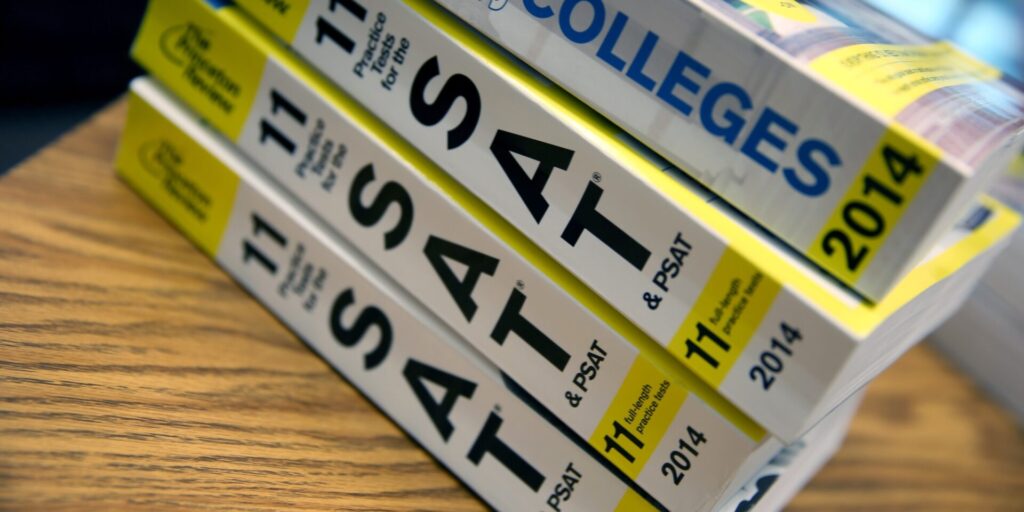How TUHSD is preparing students for college in an ever-evolving testing arena
The pandemic disrupted the testing landscape for college applicants, sparking debates over the fairness and validity of the SAT and ACT. Test scores are optional, but are they obsolete, and are these tests really the best way to measure students’ potential? Standardized tests such as the SAT and ACT are widely used by US colleges to assess the reading, writing and math skills of applicants, as well as to award scholarships.
However, the role of these tests in college admissions has been challenged by recent changes and trends in the testing landscape. One of the major shifts was the adoption of test-optional and test-blind policies by many colleges during the COVID-19 pandemic due to the difficulties of taking the tests in person. Test-optional means that students can choose whether to submit their test scores or not, while test-blind means that colleges do not consider test scores at all.
“Many schools who required test scores went optional during COVID due to students not being able to get to places to take the test,” said Diana Miller, College and Career Readiness Coordinator of the Teaching & Learning team at Tempe Union High School District. According to data from Common Application, a non-profit organization that simplifies the college application process for students, test score submissions are still at pre-pandemic levels despite the return of in-person testing for college applicants.
Before the pandemic, numerous colleges were dropping the tests for admissions requirements amid concern that they were biased against students from low-income, minority and first-generation backgrounds. Research has shown that higher ACT and SAT scores are strongly linked to higher socioeconomic status, a mother’s education level and race. Colleges were concerned that the tests hurt diversity and did not reflect the true potential of students. However, a recent article in The New York Times indicated that research doesn’t back that up.

According to data collected by Opportunity Insights, students who entered Ivy League colleges from 2017 to 2002 (excluding 2020), test scores and college grades are strongly related. The study goes on to say that students from diverse backgrounds with similar SAT/ACT scores achieve comparable grades in college. Adding that a high school GPA doesn’t do a good job of predicting academic success in college, according to the report.
Only 36 percent of U.S. graduates took the ACT test in 2022, when the national average score dropped to 19.8, the lowest since 1991, according to ACT data. Despite that, many colleges and universities continue to make tests optional. Miller said that there are different options for students depending on whether the schools they are applying to require test scores. For test-optional schools, there is a place on the application for students to provide their scores or usually a button to click that the student is opting out of providing them. Miller said there are many options for students.
“For students with great scores, they are encouraged to provide them, as it can only help them in the admissions process for private schools and qualify them for potential additional scholarships,” she said. Adding that for students with average to decent scores, counselors will talk to them about whether those scores can help or not. If students have below-average scores, then not reporting them is usually the recommendation as it could lower their chances of admission to private schools, Miller said. She added that submitting high test scores to public universities does not impact students’ admissions but can help with additional scholarships on top of automatically awarded merit scholarships.
Miller also shared her thoughts on other changes and trends in the testing landscape, such as the online and adaptive testing and the alternatives and innovations in testing. She said many of these new(er) options allow students to have more control, which can be beneficial. For example, allowing students to decide whether or not to share their scores means that they are in control of whether to release information that would benefit them (or not). However, she also noted that standardized testing continues to create potential inequity for students, as test questions may have language or other concepts that some students may be unfamiliar with due to a lack of background knowledge or context. Miller said that TUHSD offers counseling at the district’s different high schools to help students decide which option is best for them based on their strengths, goals and preferences.
She said students should research the requirements and policies of the colleges they are interested in and take advantage of the resources and support available to them. She also addressed the misconception that students have to have a good test score to get into most colleges.
“As most colleges continue to move towards making admissions decisions that are more holistic (considering all parts of a student’s ability from academic, extracurricular, community service, etc.) a test score is just a small piece of that picture,” Miller said. “When it comes to testing, there is no one-size-fits-all answer. Students need to make informed decisions that work for them.”

